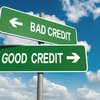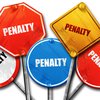Should You Pay Off Your Mortgage Early or Invest Your Money?

If you have reached a point in your life where you are making additional income, you may be wondering how to best use the extra cash. Should you invest your money into stocks, bonds, or a retirement account? Should you pay off your mortgage ahead of time? In this guide, we take a deeper look into each of these options, to arm you with the knowledge you need to make the best decision for you.
Investment Strategies for Paying Off Your Mortgage
When thinking about the best way to pay off your mortgage early, it is important to consider the timeline of your mortgage so far. If you have just begun your amortization period, paying off your mortgage early will be far more beneficial than if you are nearing the end of your mortgage loan. Within the first few payments you make, most of your money is going towards covering the interest expense, and very little is helping to pay down the principal. The sooner you pay off your mortgage, the more you can save on your overall interest expenses. If you are nearing the end of your mortgage, it may be a better use of your money to pursue alternative investments.
Another common repayment strategy is refinancing . By exchanging your current loan for a new loan, you may be able to negotiate a shorter amortization period, lower interest, and more. If you choose to pursue this strategy, conferring with a Clover Mortgage in advance broker can help. We have experience working with over 70 different lenders—and can help connect you to the best ones for you!
Paying Off Your Mortgage Early: The Pros and Cons
As with any big decision, paying off your mortgage early has both advantages and disadvantages. Here are a few of the potential upsides you may want to consider:
- Being Debt-Free: The faster you pay off your mortgage, the sooner you can have the peace of mind that comes with no more monthly payments. If you were to experience a financial emergency, having your home already paid off means that you would not run the risk of missing your monthly payments or defaulting on your mortgage.
- Interest savings: The sooner you pay off your mortgage, the more you save on interest payments that would have otherwise accrued over the lifetime of your loan.
- Equity Flexibility: Having equity in your home gives you the option to take out a Home Equity Line of Credit (HELOC) , which you could use to renovate your home or invest in a nice vacation.
Of course, there are also potential downsides you should consider:
- Neglecting Retirement : If you are investing all of your money into your mortgage, you may be forgoing other important investments, such as your retirement fund. While there are many advantages to building equity in your home, it is also critical to ensure you have the means through which to live comfortably post-retirement.
- Prepayment Penalties: Some lenders may impose significant prepayment penalties if you attempt to pay off your mortgage before the end of your term. It is important to discuss these terms with your lender ahead of time, and to familiarize yourself with your prepayment covenants.
- Loss of Tax Advantages: When you pay off your mortgage early, you can no longer claim tax-deductibles from your monthly mortgage interest payments. These tax write-offs can help you save on your annual taxes and may have a significant impact on your tax refunds.
As you consider the pros and cons of paying off your mortgage early, you should also consider the pros and cons of making alternative investments. Here are a few potential upsides of investing your money instead of paying off your mortgage:
- Higher Rate of Return: High risk, high reward. Given that investing in the stock market, or even seemingly safer investments like bonds, may be historically riskier than investing in a property, the potential for return is also higher. Making alternative investments could greatly increase your future wealth, although it can also do the opposite.
- Increased Liquidity: If you find yourself strapped for cash in the future, you may be able to take out a HELOC or sell your home, however, it is far easier to sell your investment portfolio. Stocks and bonds are inherently more liquid than property investments, and as a result, it is easier to transform them into usable cash.
- Employer Matching Programs: If you are investing into a retirement savings account, some employers will match your contributions 1:1. In this case, the same amount of money can be twice as impactful when invested into your retirement fund as opposed to your mortgage repayment.
Of course, there are also potential downsides of making alternative investments. Here are a few to look out for:
- Can Lose Money: while the riskier nature of investing can lead to higher returns, it can also lead to losses. In some cases, you may find that instead of growing your wealth through investments, you instead lose money.
- Monthly Payments: if you choose to make alternative investments rather than paying off your mortgage early, keep in mind that you will still need to make your monthly mortgage payments — on top of your investments.
- Potential to Lose Your Home: Until you finish paying off your mortgage, you do not actually have true ownership of your home. The sooner you pay off your mortgage, the less likely it is that the bank could foreclose your home.
How to Make the Right Choice for You
Unfortunately, there is no cookie-cutter solution to suit all borrowers. You will need to carefully consider the pros and cons of all the options available to you, in order to make the best choice for your unique financial needs.
Before making a decision, consider how much it would cost to pay off your mortgage early. Is the money you will save through interest and becoming debt-free a bigger priority for you than putting money away to grow your future wealth?
One thing to keep in mind is that it is very possible to pay off your mortgage early while simultaneously pursuing alternative investments—and many people do! Pursuing both goals may limit the amount of money you can dedicate towards either one, but can ultimately provide you with greater financial flexibility. One way to do this is by refinancing to a shorter loan at the end of your next term. This strategy will increase your monthly payments in the short-term, but allow you to pay off your mortgage sooner while still retaining enough cash to funnel into alternative investments.
A final consideration to make is that you do not need to choose between paying off your mortgage and investing your cash. There are many alternative uses of money that you can consider. For instance, some individuals prefer funneling their money into an emergency fund, to hedge against unforeseen financial disasters. Other people prefer to pay off other existing debts, such as their outstanding credit card payments.
It is important to clarify that we are not accountants, licensed investment advisors, financial planners, or lawyers. These are just strategies that some have found helpful in the past. Prior to making any investment decision, you should consult the right professionals which may include financial planners, investment advisors, accountants, lawyers, and others.
The number of choices available to you can be overwhelming, but working with a Clover Mortgage broker can help. Having had decades of experience in their respective fields, our experienced team can help you weigh your options, and recommend the best course of action for your unique financial needs. If you are looking to refinance your mortgage, we can also help ensure you get the best terms and lowest rates. Contact Clover Mortgage to book your free consultation today!
Resources




